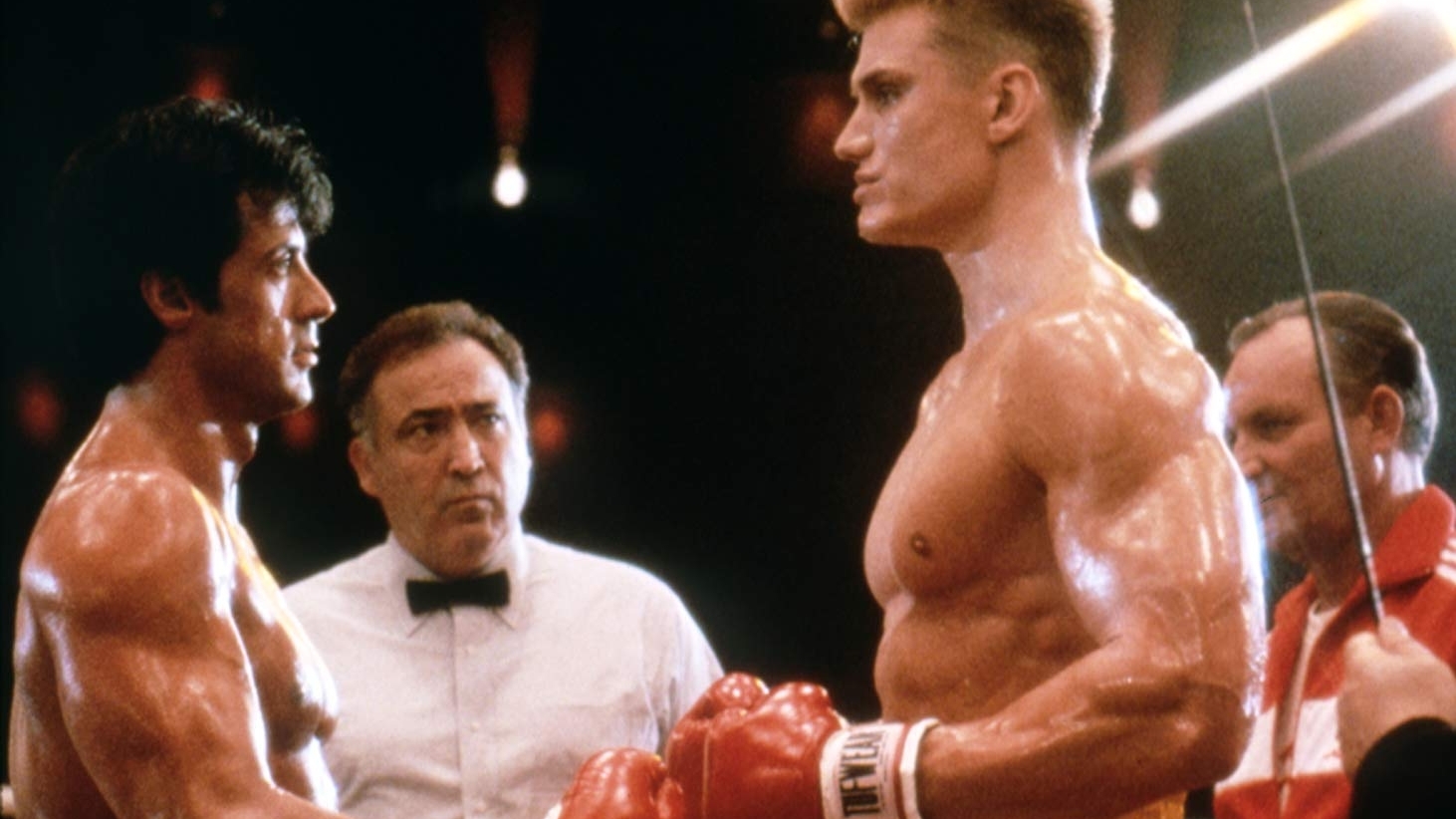Everybody Can Change: Rocky IV (1985)
There are some movies you just never get over. We all have at least one. That movie that no matter how many people offer criticisms, you just cannot shake the feeling you got when you first watched it. It transcends genre, personal experience, and sometimes even logic. For some, it is the first epic romance that colors how you view love. For others, it is that first laugh out loud comedy that is so funny that it almost hurts and can even impact your own sense of humor. For this writer, the movie that stuck was Rocky IV. I can almost hear the groans and protestations of how it is jingoistic, comic booky, and takes away from the original classic, Rocky.
Look, I’m not here to argue that this is a better movie than the original, though if you catch me on the right day, that might happen too. But I will always argue that it is a lot more fun and more rewatchable. And depending on your connection to the character of Apollo Creed (Carl Weathers), it can be more emotionally resonant, as well. Speaking of things that you just never get over, Rocky IV does a fantastic job of setting up the stakes and the power of the villain of Ivan Drago (Dolph Lundgren). In the Rocky mythos, it is terribly important for Rocky (Sylvester Stallone) to feel like an underdog. Of course, after the first film, this gets more and more difficult with each victory. But the size difference, along with Rocky appearing to be a comfortable champion (bolstered by the plotline of Rocky III), is enough to make the audience fear for our hero.
This particular chapter in the Rocky story probably has more in common with a superhero film or a straight up revenge flick than the typical sports movie. Because of this, Rocky IV wastes no time with unnecessary character work. We all know who Rocky is, and we know that, especially given the time, the Russians are the enemy. But if you look a little closer, there is some unexpected depth hidden beneath the surface. This is not simply a montage sequence disguised as a movie. But, being real, the montages and the music make the movie worth watching all on their own.
There are numerous themes present upon rewatch, including adjusting to growing older, pride, the power of independence, and the importance of hard work versus becoming dependent on technology. All of these themes easily overpower the easy target of the obvious Cold War corollaries. Leading up to the introductory fight, Rocky repeatedly warns Apollo that they are not young men anymore, and he is ignored, leading to Apollo’s tragic death. Instead of walking away, or depending on his money to help him train, Rocky goes back to his roots in a new setting. Instead of chasing chicken in Philadelphia, he decides to fight Drago in Russia and trains there in the cold, unforgiving snow. This sets up the training montage showing the differences between our hero and Drago. The result of the fight proves that Rocky’s hard work and independence are the key to his victory. And yes, this is representative of capitalism over communism, but this makes sense given the release date. Regarding pride, both Apollo and Drago (but especially his handlers) exude this attitude and a hyper masculine presence. In both examples, this excessive pride ends up being their undoing.
Speaking of Drago, Lundgren’s performance is easy to write off as a one-note villain. But there is a lot more going on with him than is seen at first glance. Drago is a man who has been basically created by his government to conquer, whether through training or chemical means. He is taught to never question, to never lose. The most interesting thing about him is his reaction to strife. When he is finally wounded by Rocky and subsequently attacked by his handlers, he finally stands up to them in the only way he knows, violently. This is a huge moment for the ultimate symbol of Communist strength. This is the only moment where we see Drago as an individual, as a real person with genuine emotions.
And now we come to the end, the change speech. It is another moment that, if you have not bought in, can feel cheesy and hard to swallow. But Rocky has changed. The Russian crowd has changed (probably the hardest part to accept), and the message offers hope in a Cold War setting instead of taking the easy way out. It would probably be easier to simply have Rocky silently standing over his fallen communist opponent in his stars and stripes trunks. Instead, Stallone makes the choice to state that two men killing each other in a ring is better than thousands dying in a pointless war. A message of peace to end a violent action packed sports movie is basically unheard of. And for this viewer, just like pretty much everything else in Rocky IV, it works and helps us look forward to a hopeful future.














